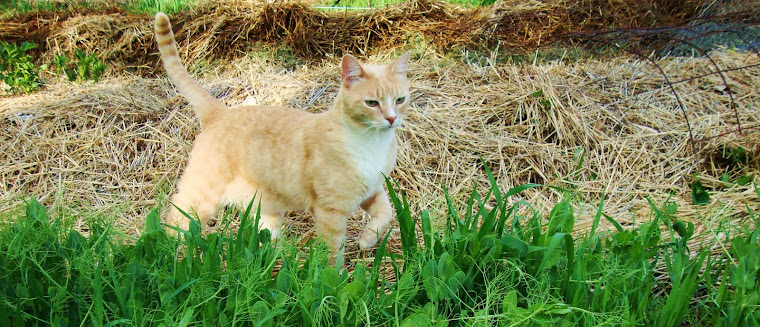Several silver haired ladies noted they lost all of their crape myrtles; the one here sustained damage on a branch by branch basis, some unscathed and others dead. About half of the roses here were frozen to death, even the miniatures which are very cold tolerant. The hyrangea died to to the ground but seems to be reviving from the roots. The butterfly bush (Buddleai davidii) which was huge, old and well established has perished entirely. On the other hand, the viburnums are superb this year and the fruit trees look quite happy.
This same conversation had been held over lunch with two farmer neighbors, both of whom noted the same destructiveness of the winter. Four and five winters back were colder, more sustained cold and deep laying snow but had little deleterious effects on the plants. What has prospered this year, alas and alack, are the poison ivy and wild briars, which are appearing everywhere.
Since no herbicides are used at Stratheden Farms, yours truly mechanically controls weeds. Normally small weeds (such as Carolina horse nettles, Solanum carolinense) are cut down by the hoe and larger ones such as privet are extracted by using welder's gloves. Due to the profusion of undesirables this spring, something faster is required: the brush scythe. There are at least two forms of blades for scythes: reaping and brush. Thanks to friend Joseph P., a top quality Austrian brush blade was purchased last autumn on eBay for less than 50% of the normal price. Brush blades are stouter, straighter and shorter - they are hell on briars, Scottish thistles, blackberries, milk weed, etc., basically, all the larger invading species.
The top blade is a reaping or grass blade, the lower a brush blade.
Despite the cold winter, the compost piles proceeded as normal. The manures (chicken and cow) had become fine powders and even the fair-sized bits of wood decayed nicely. The reason was the profusion of mycelium, the white thread-like structures in the photograph. Should you think that this is inconsequential, the largest living organism on earth is a 2,400 acre mycelium in Oregon. There is strong evidence that the presence of them in the soil is a key to healthy plants.
One last plant which is prospering: the poppies, great cheer in the garden and a color counterpoint to the blue iris, which are also blooming in abundance this year.
And this, dear reader, brings you up to date on the flora of the farm.








2 comments:
thanks
Post a Comment